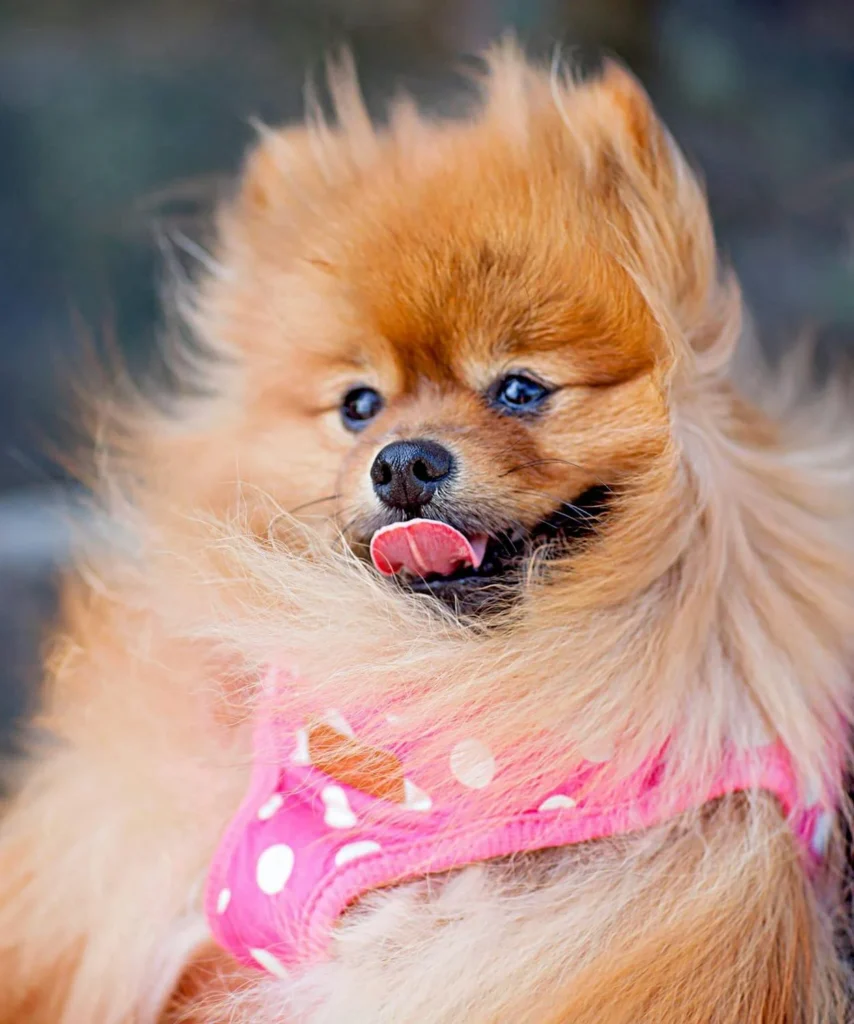Introduction: Meet the Dachshund – More Than Just a Wiener Dog 🐶
Dachshunds, with their long bodies and short legs, have captured hearts worldwide. But beneath their adorable exterior lies a complex personality that’s often misunderstood. Are these pint-sized pooches really as aggressive as some claim? Let’s dig into the facts and separate myth from reality.
The Dachshund Personality: A Mixed Bag of Traits 🎭
Dachshunds aren’t just one-note dogs. They’re a vibrant mix of:
- Courage 💪
- Stubbornness 🤨
- Loyalty ❤️
- Playfulness 🎉
- Intelligence 🧠
These traits combine to create a dog that’s as complex as it is charming. But does this combination lead to aggression?
The Root of the Rumor: Why Dachshunds Get a Bad Rap 📢
Several factors contribute to the perception of Dachshunds as aggressive:
- Breeding History: Originally bred to hunt badgers, Dachshunds needed a fearless streak.
- Small Dog Syndrome: Like many small breeds, Dachshunds may compensate for their size with big attitudes.
- Misunderstood Behaviors: What some see as aggression might actually be:
- Protective instincts
- Fear responses
- Lack of proper training
Dachshund Varieties: Does Type Influence Temperament? 🔍
Dachshunds come in different sizes and coat types. Let’s compare:
| Variety | Size | Typical Temperament | Aggression Tendency |
|---|---|---|---|
| Standard Smooth | 16-32 lbs | Confident, bold | Moderate |
| Miniature Smooth | Under 11 lbs | Feisty, energetic | Slightly higher |
| Standard Long-haired | 16-32 lbs | Calmer, gentler | Lower |
| Miniature Long-haired | Under 11 lbs | Sweet, docile | Lowest |
| Standard Wire-haired | 16-32 lbs | Mischievous, outgoing | Moderate |
| Miniature Wire-haired | Under 11 lbs | Spunky, affectionate | Moderate |
As we can see, coat type and size can influence personality, but individual experiences play a huge role too.
Dachshunds vs. Other Breeds: The Aggression Scale 📊
How do Dachshunds stack up against other breeds in terms of aggression? Let’s take a look:
| Breed | Aggression towards Strangers | Aggression towards Owners | Overall Aggression Rank |
|---|---|---|---|
| Chihuahua | High | Moderate | 1 |
| Dachshund | Moderate | Low | 5 |
| German Shepherd | Moderate | Low | 7 |
| Golden Retriever | Low | Very Low | 15 |
| Pit Bull | Moderate | Low | 8 |
Remember, these are generalizations. Individual dogs can vary greatly based on their upbringing and experiences.
The Truth About Dachshund Aggression: It’s Complicated 🤔
Dachshunds aren’t inherently aggressive, but they can display aggressive behaviors if:
- They’re not properly socialized
- They feel threatened or scared
- They’re in pain or discomfort
- They haven’t been trained consistently
It’s crucial to understand that aggression in Dachshunds (or any dog) is often a symptom of an underlying issue, not a personality trait.
Nurture vs. Nature: The Impact of Environment on Dachshund Behavior 🏡
While genetics play a role, a Dachshund’s environment significantly shapes their behavior. Key factors include:
- Early socialization
- Consistent training
- Positive reinforcement
- Regular exercise
- Mental stimulation
A well-rounded upbringing can help prevent aggressive tendencies and nurture a friendly, well-adjusted Dachshund.
Training Your Dachshund: Tips for a Well-Behaved Sausage Dog 🎓
Training a Dachshund requires patience and consistency. Here are some tips:
- Start early: Socialize your puppy from a young age.
- Use positive reinforcement: Reward good behavior with treats and praise.
- Be consistent: Set clear rules and stick to them.
- Exercise regularly: A tired Dachshund is a well-behaved Dachshund.
- Provide mental stimulation: Puzzle toys and training games keep their minds sharp.
Remember, Dachshunds can be stubborn. Stay patient and keep training sessions short and fun.
Health Issues That Can Affect Dachshund Behavior 🏥
Sometimes, what looks like aggression might be a health issue in disguise. Common health problems in Dachshunds include:
- Intervertebral Disc Disease (IVDD)
- Hip dysplasia
- Eye problems
- Obesity
Regular vet check-ups can catch these issues early and prevent behavior changes related to pain or discomfort.
The Dachshund Diet: Fueling Good Behavior 🍽️
A balanced diet can contribute to better behavior. Dachshunds need:
- High-quality protein
- Controlled portions to prevent obesity
- Omega-3 fatty acids for brain health
- Glucosamine for joint health
Consult with your vet to create the best diet plan for your Dachshund.
Exercise for Dachshunds: Burning Energy Positively 🏃♀️
Regular exercise is crucial for preventing behavioral issues. Dachshunds enjoy:
- Short walks (15-20 minutes, 2-3 times daily)
- Indoor play sessions
- Fetch games
- Nose work activities
Remember to avoid high-impact activities that could strain their long backs.
Dachshund Body Language: Reading Your Dog’s Signals 📖
Understanding your Dachshund’s body language can help prevent aggressive incidents. Watch for:
- Tail position (tucked = fearful, high and stiff = alert or aggressive)
- Ear position (forward = interested, back = fearful or submissive)
- Body posture (stiff and forward = potentially aggressive, relaxed = comfortable)
Learning to read these signals can help you intervene before a situation escalates.
Socialization: The Key to a Friendly Dachshund 🤝
Proper socialization is crucial for preventing aggression. Expose your Dachshund to:
- Different people (ages, genders, races)
- Other animals
- Various environments
- Different sounds and experiences
Start socialization early, but remember it’s an ongoing process throughout your dog’s life.
Dealing with Dachshund Aggression: When to Seek Help 🆘
If your Dachshund shows signs of aggression, don’t ignore it. Seek help if you notice:
- Growling or snapping at family members
- Excessive barking or lunging at strangers or other dogs
- Resource guarding (food, toys, people)
- Unprovoked biting
A professional dog trainer or animal behaviorist can help address these issues.
The Joys of Dachshund Ownership: Why They’re Worth It 💖
Despite their potential challenges, Dachshunds make wonderful pets. They offer:
- Unwavering loyalty
- Endless entertainment
- Snuggle companionship
- Adaptability to various living situations
With proper care and training, a Dachshund can be a loving, well-behaved family member.
Dachshund Myths Debunked: Separating Fact from Fiction 🕵️♀️
Let’s clear up some common misconceptions:
- Myth: All Dachshunds are aggressive.
Fact: While they can be feisty, proper training and socialization can result in a friendly Dachshund. - Myth: Dachshunds can’t be trained.
Fact: They’re intelligent and can learn with consistent, positive reinforcement. - Myth: Dachshunds aren’t good with children.
Fact: With proper introductions and supervision, Dachshunds can be great family dogs. - Myth: Dachshunds don’t need much exercise.
Fact: Despite their small size, they need regular exercise for physical and mental health.
Celebrity Dachshunds: Famous Sausage Dogs Who Stole Hearts 🌟
Dachshunds have had their share of fame. Some notable Dachshunds include:
- Crusoe the Celebrity Dachshund (Instagram star)
- Obie (once the world’s fattest Dachshund, now slim and healthy)
- Waldi (mascot of the 1972 Munich Olympics)
These pups show the charming and lovable side of the breed.
Dachshund Rescue: Giving a Second Chance 🏠
If you’re considering a Dachshund, don’t overlook rescue organizations. Adopting a rescue Dachshund can be rewarding, but remember:
- They may need extra patience and training
- Their history might be unknown
- They often come with a wealth of love to give
Many rescue Dachshunds overcome challenging pasts to become loving pets.
The Future of Dachshunds: Breeding for Temperament 🧬
Responsible breeders are working to improve Dachshund temperament. They focus on:
- Selecting parent dogs with good temperaments
- Early socialization of puppies
- Health testing to prevent genetic issues that could affect behavior
When choosing a Dachshund, always opt for a reputable breeder or rescue organization.
Conclusion: Are Dachshunds Aggressive? The Verdict 🧑⚖️
While Dachshunds can display aggressive behaviors, it’s unfair to label the entire breed as aggressive. With proper training, socialization, and care, Dachshunds can be loving, loyal, and well-behaved companions. Remember, every dog is an individual, and their behavior is shaped by both nature and nurture.
FAQs About Dachshund Aggression ❓
- Q: Are male or female Dachshunds more aggressive?
A: There’s no significant difference. Individual personality matters more than gender. - Q: Can an aggressive Dachshund be rehabilitated?
A: Yes, with professional help and consistent training, most aggressive behaviors can be improved. - Q: Do Dachshunds get along with cats?
A: With proper introductions and training, many Dachshunds can live happily with cats. - Q: Are Dachshunds good with children?
A: They can be, but supervision is important, especially with young children who might not understand how to handle a small dog. - Q: How can I prevent my Dachshund from becoming aggressive?
A: Early socialization, consistent training, regular exercise, and positive reinforcement are key.
Remember, every Dachshund is unique. With love, patience, and proper care, your sausage dog can be a wonderful, well-behaved companion. 🌭❤️🐾



